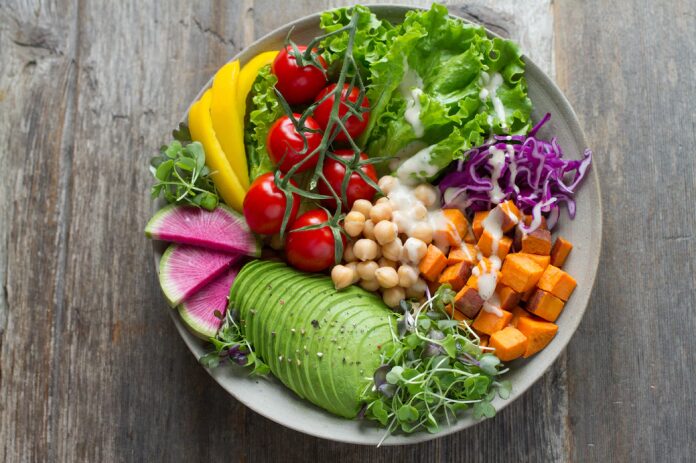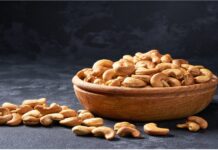Over the past decade, veganism has increasingly become popular and will likely remain so in the near future. By 2050, animal agriculture will cease to exist. At the same time, people are more concerned about the amount of carbohydrates they consume, and there are a number of diets for people who consume carbohydrates, including the Paleo diet.
For example, I know some people who do the paleo diet, where they eat conventional butter and fried bacon, but if you eat these foods with some caution, it is considered a paleo diet.
The Paleo diet has some important advantages in terms of a hunter-gatherer lifestyle, since you get more minerals, omega-3 fats, more protein and healthier fats in your diet. In fact, it has been shown to help improve autoimmune diseases and support weight loss, if done correctly. Find more on this blog.
1. Benefits of Paleo diet

The Paleolithic diet, also known as the Paleo diet, caveman diet or Stone Age diets, restricted grains, cereals, legumes, salt, dairy products, lean meats, refined sugars and foods packaged and manufactured. The paleo diet is a plan whose basic premise is that people should eat more natural and original foods, which is admirable.
Paleo advocates argue that in order to be healthier, leaner, stronger, and fitter, we need to rethink our diets and remove food groups that we consider essential. Including more whole foods, lean proteins, vegetables, fruits and healthy fats in your diet is a big improvement. The promise of fat loss, more energy and clearer skin is why paleo is so attractive.
The Paleo diet eliminates beans, sugar, legumes, grains, and dairy products. Adding artificial ingredients or hormones to cakes, cookies, and other foods is not acceptable. Plants often make up the bulk of the Paleo diet, contrary to popular misconception. Most of the vegetables in it are non-starchy – meaning all the yellow, green, orange, and red fruits and vegetables in moderation.
Aside from that, the Paleo diet consists of unprocessed meat, fish, eggs, seafood, nuts, and seeds. During this time, you will need to drink mostly water, herbal tea, and small amounts of fruit juice or alcohol. It is the caveman way if you want it. In this diet, the focus is on eating unprocessed foods. In other words, the diet has low carbohydrate content because processed foodstuffs like grains are not included. The importance of protein in weight loss cannot be overstated. In addition to reducing appetite, they increase metabolism, and regulate some hormones, which control weight.
Losing weight can also be achieved by reducing carb intake. By avoiding common carb sources, such as potatoes, bread, and rice, the Paleo diet reduces carb intake. Additionally, you should remember that carbs are not necessarily unhealthy for you, though restricting your carb intake may help you lose weight and lower your daily calorie intake.
2. Benefits of Raw vegan diet

Raw vegan diets are generally rich in fruits, vegetables, nuts, seeds, sprouted grains, and legumes. Additionally, it tends to be low in processed foods. Due to its focus on natural and organic fruits and vegetables – both of which are linked with low blood pressure and a reduced risk of heart disease and stroke. A raw vegan diet can improve cardiovascular health.
From the heart, blood is transported to various parts of the body via arteries. There is a certain amount of pressure required to push blood against the walls of the arteries. The blood pressure may vary throughout the day, however. It is possible that the pressure will increase and remain that way for a longer period of time, causing heart damage and other complications.
Hypertension, or high blood pressure, is a condition in which blood pressure is higher than normal. You are more likely to suffer a stroke or heart attack if you have hypertension.A recent study found that people who ate a vegan diet had lower blood pressure. Many plant sources, such as walnuts, contain omega-3 fatty acids, which can help maintain healthy blood vessels.
A raw vegan diet, for example, is three years away from paleo animal meat. In my honest opinion, It would be unthinkable to imitate cavemen and to engage in such diet for all ages, and most of us would probably try (or never try) to kill our own game, go out and eat organic food, eat grass meat, catch our own fish, and spend whole days foraging.
3. Benefits of Vegan diet

People who follow a vegan diet avoid food of any animal origin such as meat, fish, dairy products, eggs and foods high in fat and saturated fat. Fiber is found in plant-based foods such as fruits and vegetables, so vegans tend to consume more fiber on a plate that consists of more meat and cheese. It makes sense that this diet offers similar benefits to the Mediterranean diet.
Vegan diet is unique compared to the non-vegan diet due to the properties of plant-based foods. Nutritious, high in carbohydrates and fiber, low in fat (including saturated fat), low in calories and cholesterol, it has all these qualities. A vegetarian or vegan diet has been recommended as an ideal nutritional strategy for athletes since 1982 and is most effective for endurance athletes.
A complete and healthy vegan diet is in general rich in nutrients due to the high intake of vegetables, fruits, legumes, soy products, whole grains, nuts and seeds, which are rich in fiber, secondary plant substances and vitamins. Certain Western traditional diets, which are characterized by high consumption of red meat, sugary desserts, high-fat foods, refined cereals and sugary drinks, are flawed.
Conclusion
A diet rich in vitamins and minerals from plant-based foods has been shown to have an impact on fat loss, cardiovascular health and performance in general. There is a growing trend towards veganism for health, environmental and animal welfare reasons. People believe that a shift from hunting and gathering diet rich in wild to an agricultural major diet has led to modern chronic diseases like obesity, diabetes and cardiovascular disease. By consuming above food types, we can reduce various health risks and live longer.









